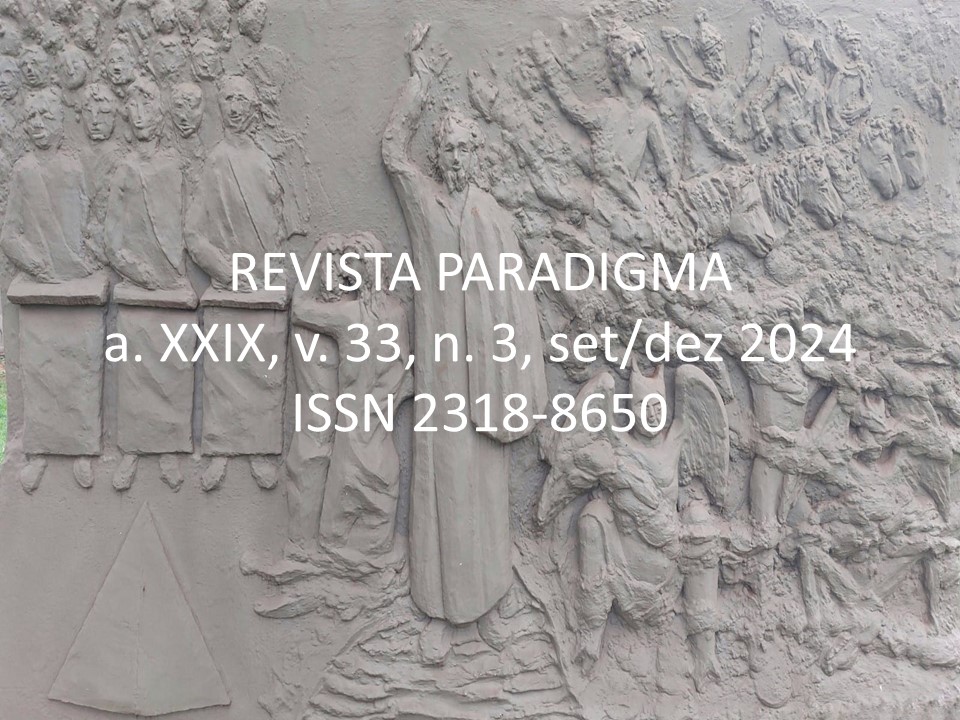GENERAL DATA PROTECTION ACT (LGPD) AND ITS IMPLICATIONS IN BIOMETRIC MONITORING
DOI:
https://doi.org/10.55839/2318-8650RevParRPv33n3pa252-273Keywords:
Biometrics. Fundamental rights. Privacy. Personal dataAbstract
In a society where information has become a financial asset, personal data is often treated without due care and even irresponsibly shared by the most diverse interests, exposing the person, their privacy, honor, security and even their heritage to free curiosity, not to mention the pecuniary frauds of unimaginable proportions, which can also tarnish many other attributes of the personality, such as reputation and image, and these conducts are often perpetrated with total disregard for constitutional and legal provisions that protect privacy and private life. In this context, aiming at a cut in the multiplicity of situations in which personal data can be collected, as well as the possibility of not ensuring the necessary and adequate conservation and use, this article proposes to think about the personal information collected and stored through biometric monitoring for future use, combining it with the security that the General Data Protection Act (Law 13.709/2018) LGPD added for a more responsible conduct of the administrators of this information in the promotion of fundamental rights. In this context, through bibliographic research and a qualitative deductive method, the relevance of the LGPD was proved due to the deficiency of the legislative system then in force to protect the citizen from the risks of access to an increasingly digitized world of information that has more vital information about individuals.
References
AGRE, Philip E. Surveillance and capture: Two models of privacy. The Information Society: An International Journal. v. 10, n.2, 1994. p. 101-127. DOI: 10.1080/01972243.1994.9960162
AGRE, Philip E. Toward a critical technical practice: lessons learned in trying to reform AI. In: BOWKER, Geoffrey C., et al (orgs). Social Science, Technical Systems, and Cooperative Work: beyond the great divide. New York: Psychology Press, 2014. p.131-157.
BEZERRA, Arthur Coelho; BELONI, Aneli. A vigilância de dados biométricos no novo regime de informação. In: VIII ENCONTRO DA ULEPICC-BRASIL - UESC/VIRTUAL, 2020. Anais [...]. 2020. Disponível em: https://www.doity.com.br/anais/8ulepiccbr/trabalho/136422. Acesso em: 07 nov. 2021.
BÍBLIA, A. T. Jó. In: Bíblia. Português. Bíblia Sagrada. Tradução de Jimmy Swaggart. Ministério de Jimmy Swaggart, Boston Rouge, LA, EUA, 2011, p. 890.
BRASIL. Constituição (1988). Constituição da República Federativa do Brasil de 1988: promulgada em 5 de outubro de 1988. Disponível em: http://www.planalto.gov.br/ccivil_03/constituicao/constituicao.htm. Acesso em 26 de jun. 2021.
_______. Lei nº 13.709, de 14 de agosto de 2018. Lei Geral de Proteção de Dados Pessoais (LGPD). Lei nº 13.709, de 14 de agosto de 2018, Brasília, 2018. Disponível em: http://www.planalto.gov.br/ccivil_03/_ato2015-2018/2018/lei/l13709.htm. Acesso em 26 de jun. 2021
CINTRA, Antônio Carlos de Araújo; GRINOVER, Ada Pellegrini; DINAMARCO, Cândido Rangel. Teoria Geral do Processo. 9 ed. 2 tir. 1993. São Paulo-SP: Malheiros, 1993.
FERREIRA FILHO, Manoel Gonçalves. Direitos humanos fundamentais. 4 ed. rev. atual. São Paulo-SP: Saraiva. 2000.
FRANCELIN, Antonio Edison. Medicina legal e o positivismo jurídico. São Paulo: Saraiva, 2014.
GARCIA, Iberê Anselmo. A segurança na identificação: a biometria da íris e da retina. 2009. Dissertação (Mestrado em Direito Penal, Medicina Forense e Criminologia) – Faculdade de Direito, Universidade de São Paulo, São Paulo, 2009. Disponível em: https://www.teses.usp.br/teses/disponiveis/2/2136/tde-24062010-084048/publico/Ibere_Anselmo_Garcia_Dissertacao.pdf. Acesso em 10 de ago. 2021.
MARQUES, Glauco Marcelo. Transformação Digital e o Acesso a Internet como Direito Fundamental. Revista Brasileira de Direitos e Garantias Fundamentais. e-ISSN: 2526-0111, v. 6, n. 2, p. 57-74. Jul/Dez, 2020. Disponível em: https://www.researchgate.net/publication/347925833_TRANSFORMACAO_DIGITAL_E_O_ACESSO_A_INTERNET_COMO_DIREITO_FUNDAMENTAL/link/5fef7e7245851553a00ec362/download. Acesso em 07 nov. 2021.
PEDROSA, Clara Bonaparte; BARACHO JUNIOR, José Alfredo de Oliveira. Algoritmos, bolha informacional e mídias sociais: desafios para as eleições na era da sociedade da informação. Revista Thesis Juris – RTJ, São Paulo, v. 10, n. 1, p. 148-164, jan./jun. 2021. http://doi.org/10.5585/rtj.v10i1.18159. Disponível em: https://periodicos.uninove.br/thesisjuris/article/view/18159/8972. Acesso em 07 nov. 2021.
ROUSSEAU, Jean-Jacques. Do contrato social. São Paulo-SP: Martin Claret, 2013.
SARMENTO, George. Pontes de Miranda e a teoria dos direitos fundamentais, 2011. Disponível em: http://files.camolinaro.net/200000490-8cd0e8ec4d/Pontes-de-Miranda-e-a-teoria-dos-direitos-fundamentais_Sarmento.pdf. Acesso em: 10 ago. 2021.
SORJ, B. A nova sociedade brasileira. Rio de Janeiro: Zahar: 2010.
SOUZA, Marco Antônio de. A Biometria e suas Aplicações. Revista Brasileira de Ciências Policiais. Brasília, v. 11, n. 2, p. 79-102, mai/ago 2020. ISSN 2318-6917. Disponível em: https://periodicos.pf.gov.br/index.php/RBCP/article/view/710/408. Acesso em: 07 nov. 2021. doi:10.31412/rbcp.v11i2.710.
TRINDADE, Antônio Augusto Cançado Trindade. A proteção internacional dos direitos humanos e o Brasil. 2 ed. Brasília-DF: Universidade de Brasília, 2000.
Downloads
Published
How to Cite
Issue
Section
License
Copyright (c) 2025 Aires David de Lima, Geovane Ferreira Gomes

This work is licensed under a Creative Commons Attribution-NonCommercial 4.0 International License.
By submitting articles to Revista Paradigma, the author already authorizes their publication in case of approval after due evaluation process, aware of the journal's free access policy.
The author declares that he is aware that all information included in the submission will be published, including name, affiliation, title and email address.


